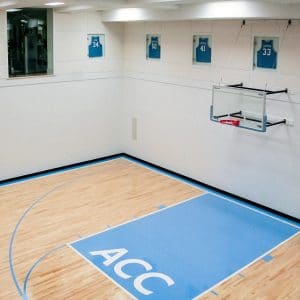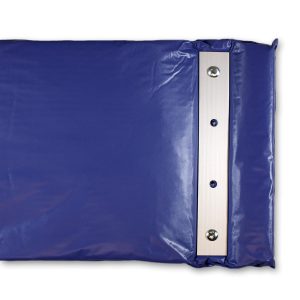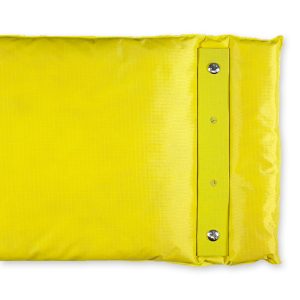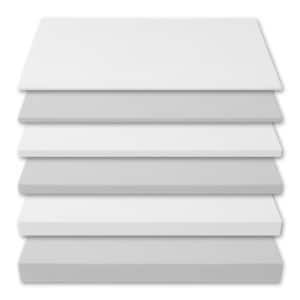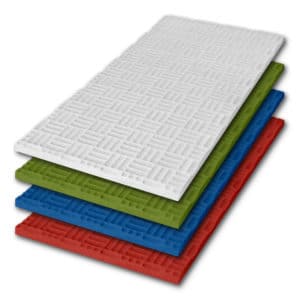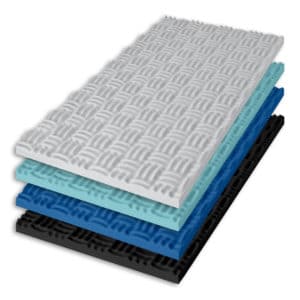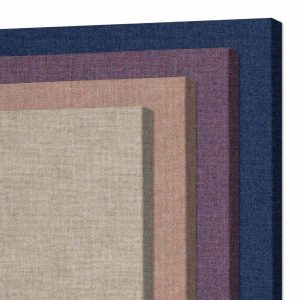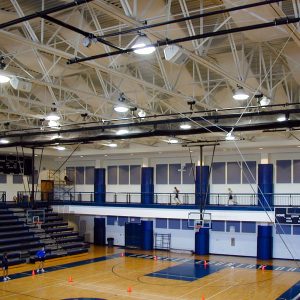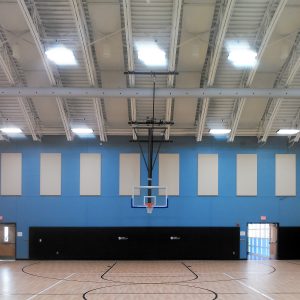Gymnasiums are important spaces where large groups of people can gather indoors for sports, speakers, and announcements. They are by design communal, which means they are going to be large and need to have great acoustics so the important messaging can be heard by all clearly. Unfortunately, these two do not typically mix!
Helping facility managers improve the acoustics in gymnasiums is a common occurrence for me, as the tall ceilings and walls present the perfect opportunity for sounds to bounce all around and create a tangle of muddiness. Considering that amplification is often required so that all can hear what is being said or announced, this issue is itself amplified! But not to worry. By utilizing sound control techniques and products, we can readily craft gymnasium acoustics to make audio crisp and clean.
What is Sound Control?
In the acoustics world, we deal with two main strategies: sound control and soundproofing. The difference is extremely important, but I can make it simple:
Sound control is the utilization of sound absorbing materials placed within a space to reduce reverb and echo, making the overall acoustics better and eliminating the muddiness that arises from these two phenomena.
Soundproofing is the utilization of sound blocking materials to stop sound from transmitting through one side of a material to the other.
When it comes to improving the sounds in a gymnasium, our main priority will be sound control. The unique aspect of gymnasiums that causes acoustic issues is their size. With very tall ceilings and hard, tall walls, sound readily bounces off of the surfaces and creates unwanted echo and reverb. If you amplify sounds through a loudspeaker, that only provides the sound more energy to bounce around even more.
You’ve probably had an experience in a gymnasium where someone is speaking and it is loud but you feel like you can barely understand what is being said. That is because of echo and reverb, the two things we seek to tame with sound control.
Echo Explained
Echo is when sound reflects back to the listener with a delay. The word echo conjures for many an image of a cave, where if you shout, your words will reflect off all of the many surfaces and come back at you, creating echo. In effect, spaces with lots of hard surface area and tall ceilings is essentially a cave, so gymnasiums are then echo creators.
Reverb Explained
Similar to echo but distinct, reverb is a dense collection of reflections that arrive quickly and combine to form a smooth sound that blends into the original sound. Often used creatively with intent in music, reverb can be highly useful, when it’s wanted. When it’s not wanted, however, reverb can create a huge wall of muddiness. This is what creates the effect where you can hear amplified speakers in a gymnasium quite loudly but may have trouble actually hearing what is being said.
The good news is this situation can be rectified completely by assembling an array of sound control products that will absorb echo and reverb, even in a large gymnasium, allowing pristine and clear sound to be heard.
Desired Results
The objective for adding sound control to a Gymnasium is to reduce the RT60 (Reverb time) and the reflections of sound on parallel walls by adding absorption to the room. Generally speaking, you are looking to achieve a reverb time (RT60) of about 2 seconds for general noise levels and 1-1.5 seconds for proper speech intelligibility. Reducing the reverb time does improve the overall acoustics.
However, it is important to remember that material should spread evenly throughout the room on the walls and ceiling. This helps to prevent direct sound reflections from parallel surfaces. This will improve overall speech intelligibility and produce a comfortable and functional multipurpose room.
Gymnasium Sound Control Products
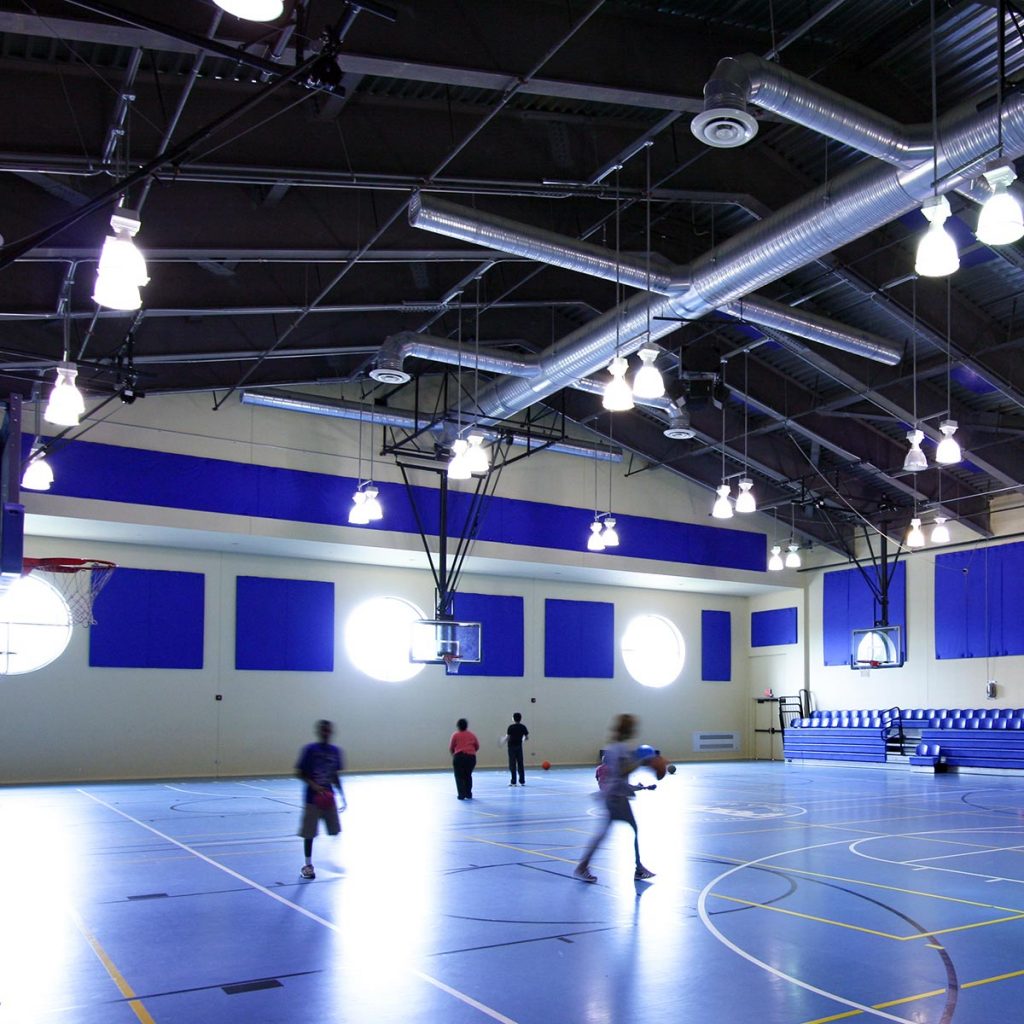
AlphaEnviro® Ripstop Acoustic Panel used in a the St. Colleta of Washington gymnasium.
Hearing clearly in a multipurpose gymnasium is extremely important. Adding sound absorptive acoustical material will help to lower reverberation time and improve speech intelligibility.
AlphaSorb® PVC Plastic Acoustic Sound Baffles are often a first choice when treating multipurpose spaces. These baffles help to reduce the overall reverb time of the room while remaining up in the ceiling, out of the way.
AlphaEnviro® Ripstop Acoustic Panels complement the PVC baffles. They reduce echo and reverberation in spaces by absorbing sound waves before they have a chance to bounce from wall to wall. These wall panels are suitable for gyms because they have a wipeable surface for easy cleaning. Also, the durable rip-stop sailcloth will stand up to abuse from things like basketballs and volleyballs. If the space is used for sporting events, materials to offer impact resistance should be considered.
Another popular way to treat gyms is with ceiling banners. These banners absorb sound and offer the same advantages as acoustical wall panels. These banners are hung horizontally along the ceiling. For a slightly different look with the same performance, acoustic baffles are a smart choice. They are similar to the banners but suspended vertically from the ceiling using the two factory-mounted grommets.
If you are looking for a higher-end look for your facility, fabric wrapped panels make a great choice. They are available in an array of colors and sizes to match any decor. AlphaSorb® High Impact Panels are a good choice if abuse-resistant panels are required.
Crosspoint™ Acoustical Wall Fabric is also great for high-traffic areas like the lower portion of the gymnasium walls.
Sound Control Solutions for Gymnasiums
Suspended from Ceiling
Direct Mount To Roof Deck
Featured Applications

EcoSorpt® Cotton Acoustic Panels on the walls of this multipurpose room gymnasium are an economical acoustic solution.
Find the Best Sound Control Products for Your Gymnasium with Acoustical Solutions
To learn more about how Acoustical Solutions can solve your noise control problems, use our contact form, call one of our Acoustical Sales Consultants at (800) 782-5742, or visit us on the web at acousticalsolutions.com.
